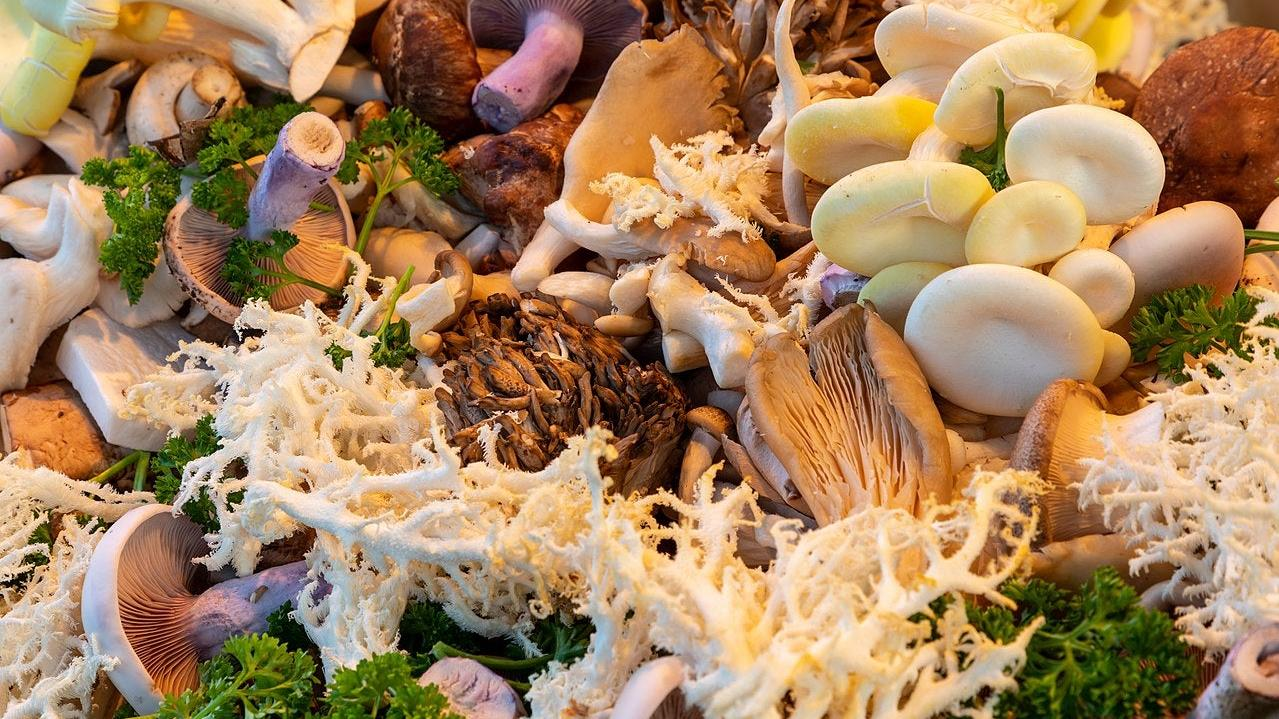The Future Is Fungus
Mycoprotein could change everything we know about plant-based meat.
Last year investors threw $3.1 billion at what is arguably the most exciting space-age food since astronaut ice cream: plant-based "meat." And you know what's crazy? One of the key ingredients in some of the newest, tastiest animal-free meat is 100% free! It's fungus, and it's on every surface that surrounds us; it's all over our bodies and in the air we breathe. Without the fungus that is always among us, plant-based protein, and life itself, would cease to exist.
Of course, synthesizing all those sweet, sexy spores into a highly processed meat substitute takes a tremendous amount of cash, so unless you've got a well-funded fungus lab at home, you probably won't be able to feast on burgers made from your own spores any time soon. Until then, we'll need to rely on the host of well-funded companies that have turned their attention to mycoproteins, which are extracted from the stringy, root-like parts of common funguses (like mushrooms) which grow underground.
Turning mycoprotein into a meat-like substitute isn't new; Wired reports that the meaty capabilities of the now-trendy protein were discovered in the mid-'60s by British movie mogul/flour baron J. Arthur Rank, who challenged his company's scientists to find a new use for his extra wheat. The game-changing fungus, Fusarium Venenatum, was discovered in a compost heap; when spores were mixed with wheat and allowed to do their thing in fermenters, they created an edible, protein-packed, and relatively flavorless "meat." The product was approved for sale in 1985 and sold under the brand name Quorn.
Mycoprotein spent the next 3o-plus years as a niche product that was well-known in the health food community, but never crossed over to the mainstream like veggie burgers kinda did. (Wired reports that Quorn didn't become profitable until 1998.) But now that plant-based protein is popular, a new wave of food companies are turning their attention to the little fungus that could change the world.
One more thing: mycoproteins have a naturally meaty texture, unlike proteins from soy or peas, which require a ton of processing to achieve the same effect. Fungus is also far more cost-effective to produce when compared with the extraction processes used for other plant-based proteins. The new crop of mycoprotein companies are exploring multiple ways the fungi can improve the food system, like using it to turn food waste into "new" food. To read more about what the future may hold for this fantastic fungus, check out Wired's article on the subject.
